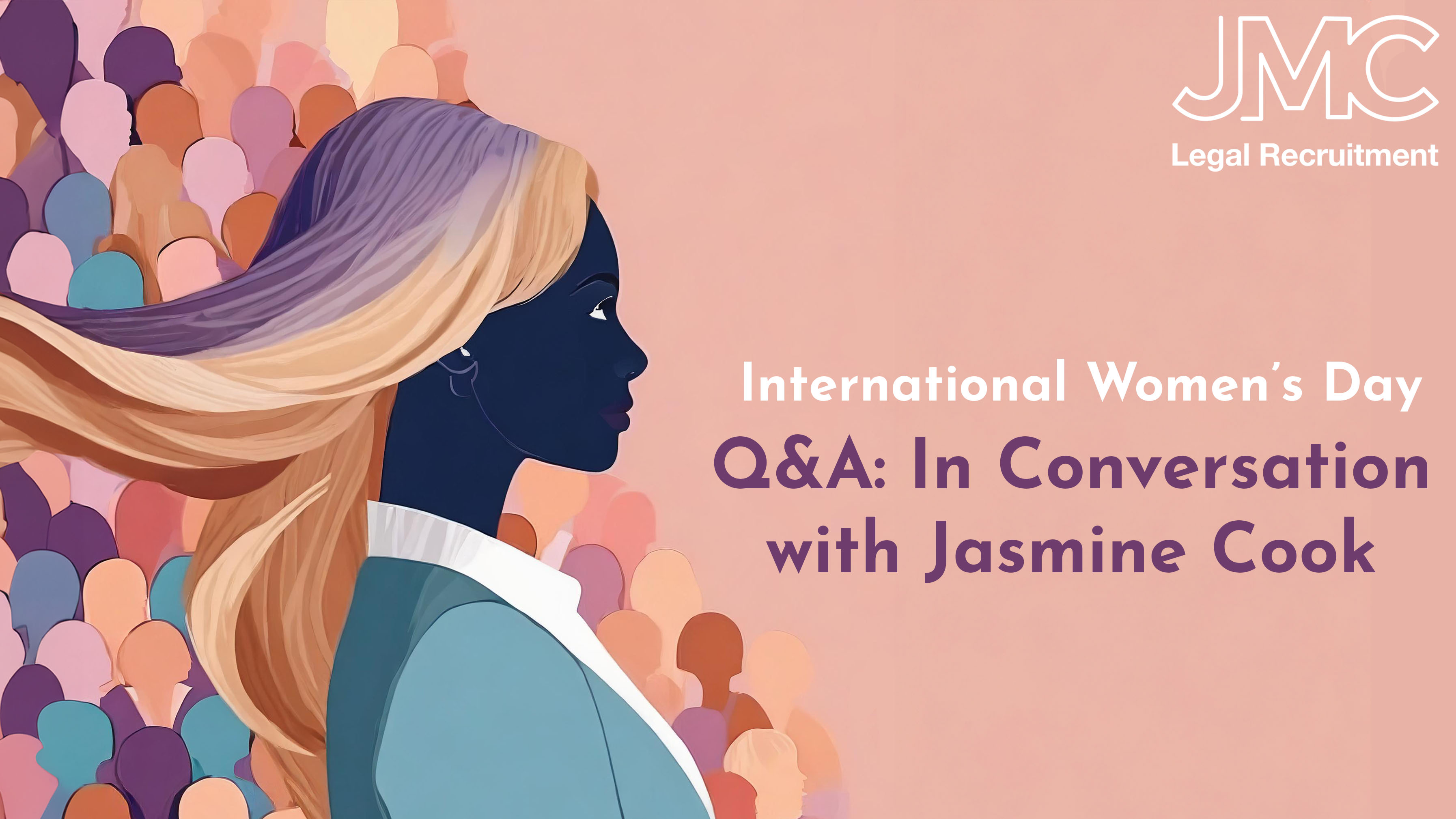
Q&A with Jasmine Cook
07 Mar, 2024 5 minutes
Can you share a little bit about yourself and your career in recruitment?
I’m a specialist Legal Recruiter and lead the South West division here at JMC Legal. I had an academic interest in law from a young age and went on to study the subject at University. I worked as a paralegal for a year and decided that the Solicitor route wasn’t quite the right fit for me. I ended up getting into recruitment from there, which set me on my current career path.
Transitioning into recruitment opened up a new world of opportunities and allowed me to combine my passion for the legal field with my sales and business skills. I've found immense fulfilment in helping legal professionals find their ideal roles and supporting law firms in building exceptional teams.
As a female legal recruiter, do you believe there are unique strengths or perspectives that women bring to the legal profession? How do you communicate these qualities to prospective employers?
Absolutely. Women are fantastic communicators and, as such, tend to excel when collaborating colleagues, clients and stakeholders. Females have active listening skills and can apply empathy to situations which brings a unique perspective in the legal world, as these qualities can be crucial in getting all parties on the same page when dealing with legal issues.
What are some common concerns or obstacles that women in the legal profession face when it comes to career advancement?
Law has historically been a male-dominated industry and although strides have been taken to address gender bias in the legal industry, it does still exist. Discrimination can manifest in different ways and is often subtle and pervasive, from biased hiring practices to limited opportunities for promotions and leadership roles. Therefore, a lot of women are concerned about whether they are on a level playing field with their male counterparts and have access to the same opportunities.
The demanding nature of legal work, including long hours and unpredictable schedules, presents a significant challenge for women with young families striving to balance their professional and personal lives. The decision to start a family can lead many women to fear that their careers will stagnate, leaving them feeling overlooked and left behind in their professional development.
Have you noticed any positive shifts in the legal industry regarding gender diversity and inclusion?
Yes, there is increasing recognition of the importance of gender diversity and inclusion in the legal profession. Many law firms are taking proactive steps by initiating programs aimed at promoting diversity, equity, and inclusion, specifically targeting gender disparities and biases. As awareness grows, there's heightened demand for greater transparency and accountability to ensure that employers aren't just paying lip service to these issues but are actively implementing meaningful change.
We’ve all seen a global shift towards hybrid working in the wake of Covid, and as such, there is a greater emphasis on offering flexible work that benefits all of those working in the legal profession. Flexible schedules, remote work options and compressed hours can help support work-life balance and retention of female talent.
Looking ahead, what initiatives/conversations would you like to see in workplaces within the legal profession to support the advancement and success of women?
As I mentioned previously, discrimination can be pervasive in form and so it’s really important that hiring managers receive regular training on unconscious bias and how this might be affecting their decision-making in order to take proactive steps to address it.
I’d like to see more firms asking themselves the question – what can we offer to attract and train our best female talent and how can we build confidence in us as an employer?
This isn’t just about salary and WFH policies - it’s time to get creative! Ask your female talent what they feel they could benefit from, perhaps they’re looking for early leadership training or bespoke reintegration programs, listen to their feedback and find ways to action their ideas.
What advice do you typically offer to women who are navigating office dynamics in legal environments where gender biases may exist?
As a starting point, I’d encourage women to voice their experiences and concerns, especially to their managers. Managers appreciate feedback and should be open to making positive changes, so you might be pleasantly surprised with what comes back. You could also check to see if your firm has any internal resources or support networks focused on diversity and inclusion to help you.
If things don’t improve, exploring alternative options might be necessary. In such cases, I can offer help and support to navigate this process. Together, we can identify firms that align with your values and career goals, ensuring that you find a workplace where you can thrive and achieve your full potential.
What advice do you have for women who are aspiring to leadership positions within law firms or legal departments?
Like so many women, I’ve found myself downplaying my capabilities throughout my career when working in male-dominated environments, so I know first-hand how hard it can be! I’ve had to work on my confidence over the years and find strategies to advocate for myself in the workplace.
I think the starting point is to self-reflect and truly understand yourself and what you bring to the table. Once you have that insight and can communicate it clearly, you’ll naturally become more assertive and able to pursue opportunities for advancement with confidence.
I’d also recommend finding a female mentor, someone you admire who can share advice and guidance on how they got to where they are. When seeking a mentor, look for someone whose career trajectory aligns with your aspirations and values. Reach out to them with a genuine interest in learning from their experiences, and be open to their guidance and feedback.




